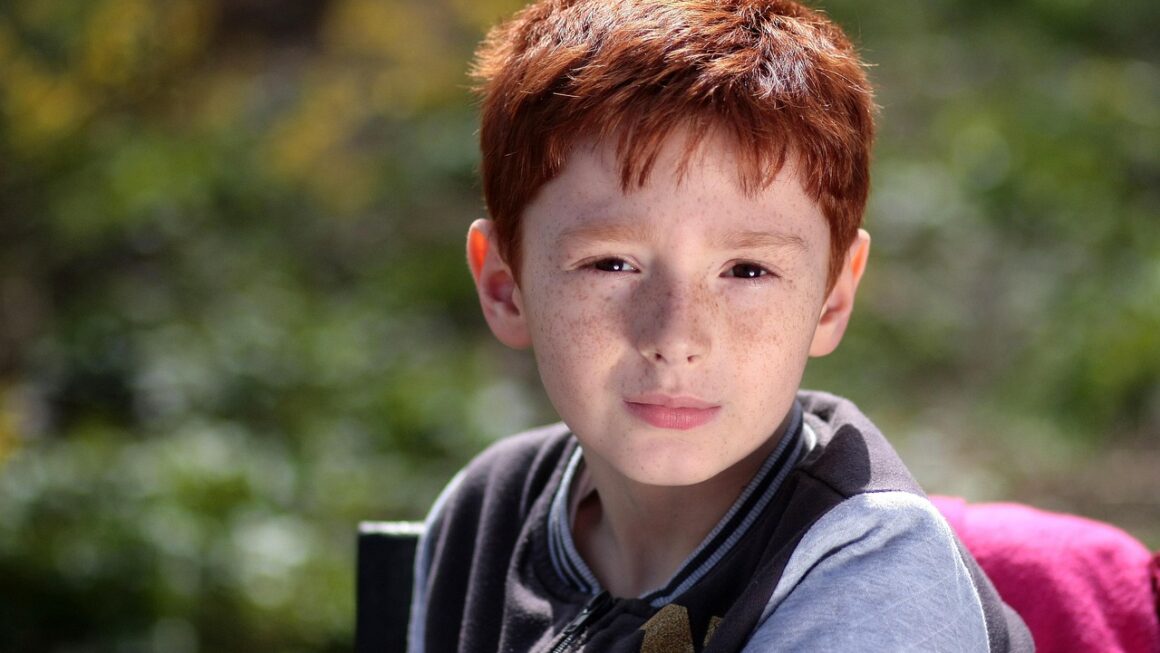Navigating the world of parenting can feel like traversing a vast, uncharted territory. There’s no one-size-fits-all map, and what works for one family might not work for another. Understanding the different parenting styles and their potential impact on your child’s development can provide a compass, helping you make informed choices that align with your values and your child’s needs. This guide will explore various parenting styles, offering practical insights and actionable strategies to help you cultivate a nurturing and supportive environment.
Understanding Parenting Styles
Parenting styles are the various approaches parents use to raise their children, encompassing a range of behaviors, values, and beliefs. These styles significantly influence a child’s emotional, social, and cognitive development. Understanding these styles can empower parents to be more intentional and effective in their parenting practices.
What are the main parenting styles?
Psychologists generally recognize four main parenting styles, each characterized by varying degrees of demandingness (expectations and rules) and responsiveness (warmth and support).
- Authoritative Parenting: High demandingness and high responsiveness. This style emphasizes clear rules and expectations but also involves warmth, understanding, and open communication.
- Authoritarian Parenting: High demandingness and low responsiveness. This style is characterized by strict rules, high expectations, and little warmth or flexibility.
- Permissive Parenting: Low demandingness and high responsiveness. This style is characterized by warmth and acceptance but a lack of clear rules and boundaries.
- Uninvolved Parenting: Low demandingness and low responsiveness. This style is characterized by a lack of involvement, little support, and few expectations.
Why is understanding parenting styles important?
Understanding different parenting styles is crucial because:
- It helps parents identify their natural tendencies and potential blind spots.
- It allows parents to consciously adapt their approach to better meet their child’s needs.
- It provides a framework for understanding the potential impact of different parenting behaviors on child development.
- It can facilitate better communication and collaboration between co-parents.
Authoritative Parenting: The Balanced Approach
Authoritative parenting is often considered the most effective parenting style. It combines clear expectations and rules with warmth, support, and open communication. Authoritative parents set boundaries but also encourage their children to think independently and express their opinions.
Key Characteristics of Authoritative Parenting
- Clear Expectations and Rules: Authoritative parents establish clear rules and expectations for their children’s behavior, ensuring that children understand what is expected of them.
Example: Setting a consistent bedtime and explaining the importance of sleep for their child’s health and well-being.
- Warmth and Support: They provide a nurturing and supportive environment, showing love, affection, and empathy.
Example: Actively listening to their child’s concerns and offering comfort and encouragement when they are struggling.
- Open Communication: Authoritative parents encourage open communication, actively listening to their children’s thoughts and feelings.
Example: Engaging in regular family discussions where everyone has the opportunity to share their thoughts and opinions.
- Reasoning and Explanation: They explain the reasons behind their rules and decisions, helping children understand the rationale.
Example: Explaining why screen time is limited and how it can affect their focus and sleep.
- Flexibility and Adaptability: Authoritative parents are willing to adjust their approach based on their child’s individual needs and circumstances.
Example: Relaxing bedtime rules on special occasions or adjusting expectations based on their child’s developmental stage.
Benefits of Authoritative Parenting
- Higher Self-Esteem: Children raised with authoritative parenting tend to have higher self-esteem and confidence.
- Better Academic Performance: They often perform better in school due to a strong sense of self-discipline and motivation.
- Stronger Social Skills: These children tend to have better social skills and are more likely to form healthy relationships.
- Improved Emotional Regulation: They are better able to manage their emotions and cope with stress.
- Increased Independence: Authoritative parenting fosters independence and autonomy.
Authoritarian Parenting: The Strict Approach
Authoritarian parenting is characterized by high expectations, strict rules, and a lack of warmth or flexibility. Authoritarian parents often use punishment and control to enforce their rules, with little room for negotiation or discussion.
Key Characteristics of Authoritarian Parenting
- Strict Rules and Expectations: Authoritarian parents set rigid rules and expect strict obedience from their children.
Example: Demanding that their child clean their room perfectly with no negotiation.
- Punishment and Control: They often use punishment, such as spanking or grounding, to enforce their rules.
Example: Grounding their child for a week for a minor infraction.
- Lack of Warmth and Affection: Authoritarian parents tend to be less warm and affectionate than authoritative parents.
Example: Rarely offering praise or encouragement.
- One-Way Communication: Communication is primarily one-way, with parents issuing orders and children expected to obey without question.
Example: “Do as I say, not as I do.”
- Limited Autonomy: Children have little autonomy or opportunity to make their own decisions.
Example: Choosing their clothes or extracurricular activities is usually restricted.
Potential Drawbacks of Authoritarian Parenting
- Lower Self-Esteem: Children raised with authoritarian parenting often have lower self-esteem and confidence.
- Increased Anxiety and Depression: They are more likely to experience anxiety and depression.
- Poor Social Skills: These children may struggle to develop healthy relationships and assert themselves appropriately.
- Rebellious Behavior: In some cases, authoritarian parenting can lead to rebellious behavior as children seek to assert their independence.
- Difficulty with Emotional Regulation: They may struggle to manage their emotions and cope with stress.
Permissive Parenting: The Indulgent Approach
Permissive parenting, also known as indulgent parenting, is characterized by warmth and acceptance but a lack of clear rules and boundaries. Permissive parents often prioritize their child’s happiness above all else and may be reluctant to set limits or enforce consequences.
Key Characteristics of Permissive Parenting
- Lack of Rules and Boundaries: Permissive parents set few rules and boundaries, allowing their children considerable freedom.
Example: Allowing their child to eat whatever they want, whenever they want.
- Warmth and Acceptance: They are typically very warm and accepting of their children, providing a nurturing and supportive environment.
Example: Overly praising their child, even when they have not earned it.
- Avoidance of Conflict: Permissive parents often avoid conflict, preferring to give in to their children’s demands rather than engage in arguments.
Example: Giving in to a child’s tantrum in a store to avoid embarrassment.
- Emphasis on Happiness: They prioritize their child’s happiness above all else, often neglecting discipline and structure.
Example: Letting their child stay up late and miss school because they don’t want to go.
- Limited Expectations: They have low expectations for their child’s behavior and achievement.
Example: Not encouraging their child to study or participate in extracurricular activities.
Potential Challenges of Permissive Parenting
- Lack of Self-Discipline: Children raised with permissive parenting often struggle with self-discipline and impulse control.
- Poor Academic Performance: They may perform poorly in school due to a lack of motivation and structure.
- Difficulty with Authority: These children may struggle to respect authority figures and follow rules.
- Increased Risk of Risky Behaviors: They are more likely to engage in risky behaviors, such as substance abuse, due to a lack of boundaries and consequences.
- Entitlement and Lack of Respect: Permissive parenting can foster a sense of entitlement and a lack of respect for others.
Uninvolved Parenting: The Neglectful Approach
Uninvolved parenting, also known as neglectful parenting, is characterized by a lack of involvement, little support, and few expectations. Uninvolved parents are often emotionally detached and may struggle to provide their children with the attention and guidance they need.
Key Characteristics of Uninvolved Parenting
- Lack of Involvement: Uninvolved parents show little interest in their child’s life and activities.
Example: Not attending school events or extracurricular activities.
- Emotional Detachment: They are often emotionally detached and unresponsive to their child’s needs.
Example: Not providing comfort or support when their child is upset.
- Few Expectations or Rules: Uninvolved parents set few expectations or rules, providing little guidance or structure.
Example: Not monitoring their child’s whereabouts or activities.
- Limited Support: They offer little support or encouragement, leaving their child to fend for themselves.
Example:* Not helping with homework or providing guidance on important decisions.
- Neglect: In extreme cases, uninvolved parenting can amount to neglect, where the child’s basic needs are not met.
Potential Consequences of Uninvolved Parenting
- Lower Self-Esteem: Children raised with uninvolved parenting often have lower self-esteem and confidence.
- Poor Academic Performance: They typically perform poorly in school due to a lack of support and encouragement.
- Increased Risk of Mental Health Issues: These children are more likely to experience mental health issues, such as anxiety, depression, and substance abuse.
- Difficulty with Relationships: They may struggle to form healthy relationships due to a lack of emotional connection and support.
- Behavioral Problems: Uninvolved parenting can lead to behavioral problems, such as aggression, delinquency, and truancy.
Conclusion
Choosing the right parenting style is a deeply personal decision, one that should be guided by your values, your child’s needs, and a commitment to creating a nurturing and supportive environment. While authoritative parenting is often considered the most effective approach, it’s important to remember that no single style is perfect for every family. By understanding the different parenting styles and their potential impact on your child’s development, you can make informed choices and adapt your approach to meet your child’s unique needs, ultimately fostering their growth into confident, well-adjusted individuals. The journey of parenting is a continuous learning process, embrace it with an open heart and a willingness to adapt and grow alongside your child.




